Superiority:
PRODUCT DETAILS
Product name: Glycerin monostearate (GMS)
Properties: Glycerin monostearate(GMS), molecular weight 358. It is white or light yellow waxy
or powder solid; Soluble in hot alcohols, petroleum, and hydrocarbons.
Cas Number: 31566-31-1 / 123-94-4
Uses: GMS is mainly used as release agent, plasticizer, antistatic agent in the plastic industry,
especially as an antishrinking agent for plastic foamed products. It can also be applied to plastic
products such as PE, PP, PVC, PC, PET, etc., with significant and long-lasting anti-static effects.
Technical Datasheet:
Test items
Glyceryl monostearate (GMS90) Glyceryl monostearate (GMS40)
Grade
Industrial grade
Industrial grade
Appearance
White or light yellow waxy or
powder solid
white or light yellow waxy or
powder solid
Monoglyceride content ≥90.0%
≥40.0%
Free glycerol
≤ 1.5%
≤ 2.5%
Acid value
≤ 6.0mgKOH/g
≤5.0mgKOH/g
Lead
/
≤ 2.0mg/kg
Iodine value
≤ 1.0gI2/100g
≤ 1.5gI2/100g
Freezing point
60℃~70 ℃
≥53℃
Color (Lovibond)
≤ 200(Hazen)
≤ 400(Hazen)
Shelf life
2 years
| Glyceryl monostearate Basic information |
| |
| Glyceryl monostearate Chemical Properties |
| Melting point |
78-81 °C |
| Boiling point |
410.96°C (rough estimate) |
| density |
0.9700 |
| refractive index |
1.4400 (estimate) |
| storage temp. |
Sealed in dry,Store in freezer, under -20°C |
| solubility |
Soluble in hot ethanol, ether, chloroform, hot acetone, mineral oil, and fixed oils. Practically insoluble in water, but may be dispersed in water with the aid of a small amount of soap or other surfactant. |
| form |
Powder |
| color |
Pure-white or cream-colored, wax-like solid |
| Odor |
faint odor |
| Water Solubility |
Soluble in hot organic solvents.Soluble in hot water. Slightly soluble in ethanol. Insoluble in aliphatic solvents. |
| Merck |
14,4489 |
| CAS DataBase Reference |
31566-31-1(CAS DataBase Reference) |
| EPA Substance Registry System |
Glyceryl monostearate (31566-31-1) |
| WGK Germany |
1 |
| TSCA |
Yes |
| Toxicity |
LD50 ipr-mus: 200 mg/kg NTIS** AD277-689 |
| Provider |
Language |
| SigmaAldrich |
English |
| ALFA |
English |
| |
| Glyceryl monostearate Usage And Synthesis |
| Description |
§184.1324(a) Glyceryl monostearate, also known as monostearin, is a mixture of variable proportions of glyceryl monostearate (C21H42O4), and glyceryl esters of fatty acids present in commercial stearic acid. Glyceryl monostearate is prepared by glycerolysis of certain fats or oils that are derived from edible sources or by esterification, with glycerin, of stearic acid that is derived from edible sources. |
| Chemical Properties |
Glyceryl monostearate is waxy to the touch and has a slight, mild fatty odor and taste The USP describes glyceryl monostearate as consisting of not less than 90% of monoglycerides, chiefy glyceryl monostearate and glyceryl monopalmitate. |
| Chemical Properties |
Beads |
| Chemical Properties |
While the names glyceryl monostearate and mono- and diglycerides are used for a variety of esters of long-chain fatty acids, the esters fall into two distinct grades:
40–55 percent monoglycerides The PhEur 6.0 describes glyceryl monostearate 40–55 as a mixture of monoacylglycerols, mostly monostearoylglycerol, together with quantities of di- and triacylglycerols. It contains 40–55% of monoacylglycerols, 30–45% of diacylglycerols, and 5–15% of triacylglycerols. This PhEur grade corresponds to mono- and di-glycerides USP– NF, which has similar specifications (not less than 40% monoglycerides).
90 percent monoglycerides The USP32–NF27 describes glyceryl monostearate as consisting of not less than 90% of monoglycerides of saturated fatty acids, chiefly glyceryl monostearate (C21H42O4) and glyceryl monopalmitate (C19H38O4).
The commercial products are mixtures of variable proportions of glyceryl monostearate and glyceryl monopalmitate.
Glyceryl monostearate is a white to cream-colored, wax-like solid in the form of beads, flakes, or powder. It is waxy to the touch and has a slight fatty odor and taste. |
| Uses |
glyceryl stearate is an emulsifier that helps form neutral, stable emulsions. It is also a solvent, humectant, and consistency regulator in water-in-oil and oil-in-water formulations. In addition, it can be used as a skin lubricant and imparts a pleasant skin feel. glyceryl stearate is a mixture of mono-, di-, and triglycerides of palmitic and stearic acids, and is made from glycerin and stearic fatty acids. Derived for cosmetic use from palm kernel or soy oil, it is also found in the human body. It is very mild with a low skin-irritation profile; however, a slight risk of irritation exists if products contain poor quality glyceryl stearate. |
| Uses |
Glyceryl monostearate is also known as monostearin, is a mixture of variable proportions of glyceryl monostearate, glyceryl monopalmitate, and glyceryl esters of fatty acids present in commercial stearic acid. Is prepared by glycerolysis of certain fats or oils that are derived from edible sources or by esterification, with glycerin, of stearic acid that is derived from edible sources. |
| Uses |
Lonzest(R) GMS is a surfactant used in a variety of markets. |
| Uses |
Aldo(R) MS BO KFG is a glycerol ester made from soybean oil derived fatty acid. This product finds uses in both food and cosmetic applications. |
| Uses |
Aldo(R) MSD KFG is a self emulsifying nonionic surfactant, used as a lubricant in confectionery, as a release agent and as a dough softener. It is used as a low HLB emulsifier in personal care products where non animal grade products are needed. |
| Uses |
In pharmaceutical dispensing, see Green, J. Am. Pharm. Assoc. Pract. Pharm. Ed. 7, 299 (1946). |
| Uses |
glyceryl monostearate (glycerin monostearate; glyceryl stearate) is widely used in cosmetics. It is an emulsifying and solubilizing ingredient, dispersing agent, emollient, formula stabilizer, and surface-action agent. employed in baby creams, face masks, foundation, and hand lotions, it is often derived from hydrogenated soybean oil. glyceryl monostearate has little or no G toxicity. |
| Definition |
An intermediate chemical. |
| Production Methods |
Glyceryl monostearate is prepared by the reaction of glycerin with triglycerides from animal or vegetable sources, producing a mixture of monoglycerides and diglycerides. The diglycerides may be further reacted to produce the 90% monoglyceride grade. Another process involves reaction of glycerol with stearoyl chloride.
The starting materials are not pure substances and therefore the products obtained from the processes contain a mixture of esters, including palmitate and oleate. Consequently, the composition, and therefore the physical properties, of glyceryl monostearate may vary considerably depending on the manufacturer. |
| Pharmaceutical Applications |
The many varieties of glyceryl monostearate are used as nonionic emulsifiers, stabilizers, emollients, and plasticizers in a variety of food, pharmaceutical, and cosmetic applications. It acts as an effective stabilizer, that is, as a mutual solvent for polar and nonpolar compounds that may form water-in-oil or oil-in-water emulsions.These properties also make it useful as a dispersing agent for pigments in oils or solids in fats, or as a solvent for phospholipids, such as lecithin.
Glyceryl monostearate has also been used in a novel fluidized hot-melt granulation technique for the production of granules and tablets.
Glyceryl monostearate is a lubricant for tablet manufacturing and may be used to form sustained-release matrices for solid dosage forms. Sustained-release applications include the formulation of pellets for tablets or suppositories, and the preparation of a veterinary bolus. Glyceryl monostearate has also been used as a matrix ingredient for a biodegradable, implantable, controlledrelease dosage form.
When using glyceryl monostearate in a formulation, the possibility of polymorph formation should be considered. The aform is dispersible and foamy, useful as an emulsifying agent or preservative. The denser, more stable, b-form is suitable for wax matrices. This application has been used to mask the flavor of clarithromycin in a pediatric formulation. |
| Safety Profile |
Poison by intraperitoneal route. When heated to decomposition it emits acrid smoke and irritating fumes. See also ESTERS. |
| Safety |
Glyceryl monostearate is widely used in cosmetics, foods, and oral and topical pharmaceutical formulations, and is generally regarded as a nontoxic and nonirritant material.
LD50 (mouse, IP): 0.2 g/kg |
| storage |
If stored at warm temperatures, glyceryl monostearate increases in acid value upon aging owing to the saponification of the ester with trace amounts of water. Effective antioxidants may be added, such as butylated hydroxytoluene and propyl gallate.
Glyceryl monostearate should be stored in a tightly closed container in a cool, dry place, and protected from light. |
| Incompatibilities |
The self-emulsifying grades of glyceryl monostearate are incompatible with acidic substances. |
| Regulatory Status |
GRAS listed. Included in the FDA Inactive Ingredients Database (oral capsules and tablets; ophthalmic, otic, rectal, topical, transdermal, and vaginal preparations). Included in nonparenteral medicines licensed in the UK. Included in the Canadian List of Acceptable Non-medicinal Ingredients.
If glyceryl monostearate is produced from animal fats (tallow), there may be additional regulatory requirements that the source be free of contamination from bovine spongiform encephalopathy. |
| |
| Glyceryl monostearate Preparation Products And Raw materials |
|
|
|
About US
Leader Biochemical Group is a large leader incorporated industry manufacturers and suppliers of advanced refined raw materials From the year of 1996 when our factory was put into production to year of 2020, our group has successively invested in more than 52 factories with shares and subordinates.We focus on manufacture Pharm & chemicals, functional active ingredients, nutritional Ingredients, health care products, cosmetics, pharmaceutical and refined feed, oil, natural plant ingredients industries to provide top quality of GMP standards products.All the invested factories' product lines cover API and intermediates, vitamins, amino acids, plant extracts, daily chemical products, cosmetics raw materials, nutrition and health care products, food additives, feed additives, essential oil products, fine chemical products and agricultural chemical raw materials And flavors and fragrances. Especially in the field of vitamins, amino acids, pharmaceutical raw materials and cosmetic raw materials, we have more than 20 years of production and sales experience. All products meet the requirements of high international export standards and have been recognized by customers all over the world. Our manufacture basement & R&D center located in National Aerospace Economic & Technical Development Zone Xi`an Shaanxi China. Now not only relying on self-cultivation and development as well as maintains good cooperative relations with many famous research institutes and universities in China. Now, we have closely cooperation with Shanghai Institute of Organic Chemistry of Chinese Academy of Science, Beijing Institute of Material Medical of Chinese Academy of Medical Science, China Pharmaceutical University, Zhejiang University. Closely cooperation with them not only integrating Science and technology resources, but also increasing the R&D speed and improving our R&D power. Offering Powerful Tech supporting Platform for group development. Keep serve the manufacture and the market as the R&D central task, focus on the technical research. Now there are 3 technology R & D platforms including biological extract, microorganism fermentation and chemical synthesis, and can independently research and develop kinds of difficult APIs and pharmaceutical intermediates. With the strong support of China State Institute of Pharmaceutical Industry (hereinafter short for CSIPI), earlier known as Shanghai Institute of Pharmaceutical Industry (SIPI), we have unique advantages in the R & D and industrialization of high-grade, precision and advanced products. Now our Group technical force is abundant, existing staff more that 1000 people, senior professional and technical staff accounted for more than 50% of the total number of employees, including 15 PhD research and development personnel, 5 master′ S degree in technical and management personnel 9 people. We have advanced equipment like fermentation equipment and technology also extraction, isolation, purification, synthesis with rich production experience and strict quality control system, According to the GMP required, quickly transforming the R&D results to industrial production in time, it is our advantages and our products are exported to North and South America, Europe, Middle East, Africa, and other five continents and scale the forefront in the nation, won good international reputation. We believe only good quality can bring good cooperation, quality is our key spirit during our production, we are warmly welcome clients and partner from all over the world contact us for everlasting cooperation, Leader will be your strong, sincere and reliable partner in China.
Group profiles
Our Factories production lines
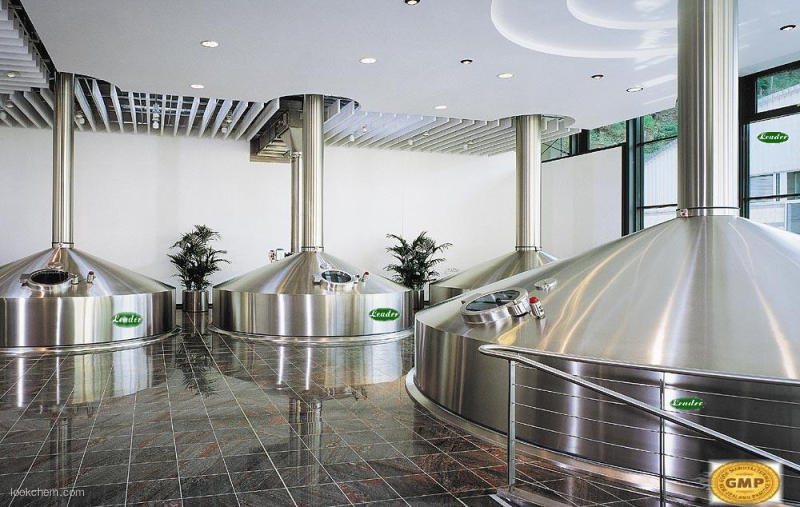
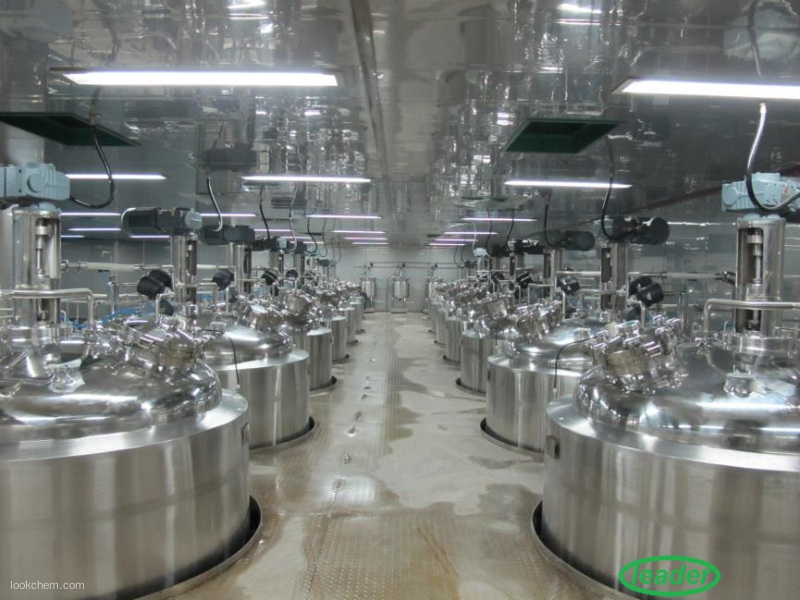
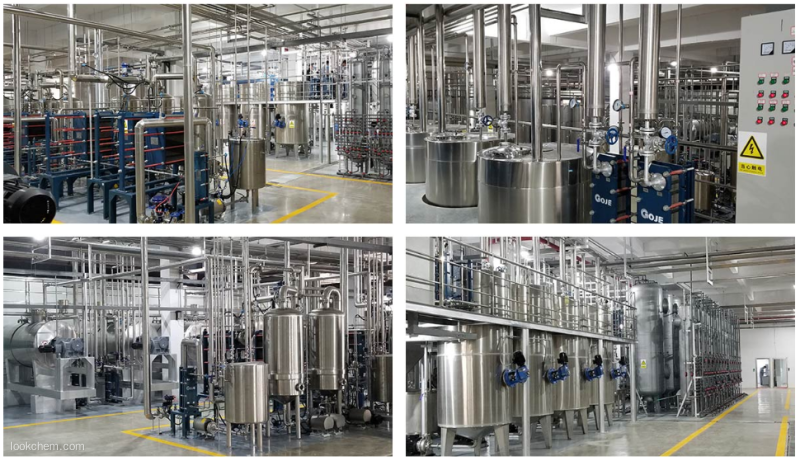
Our Factories R&D ability

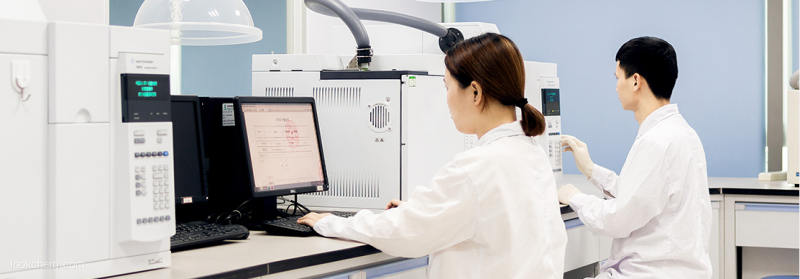
Our Factories warehouse
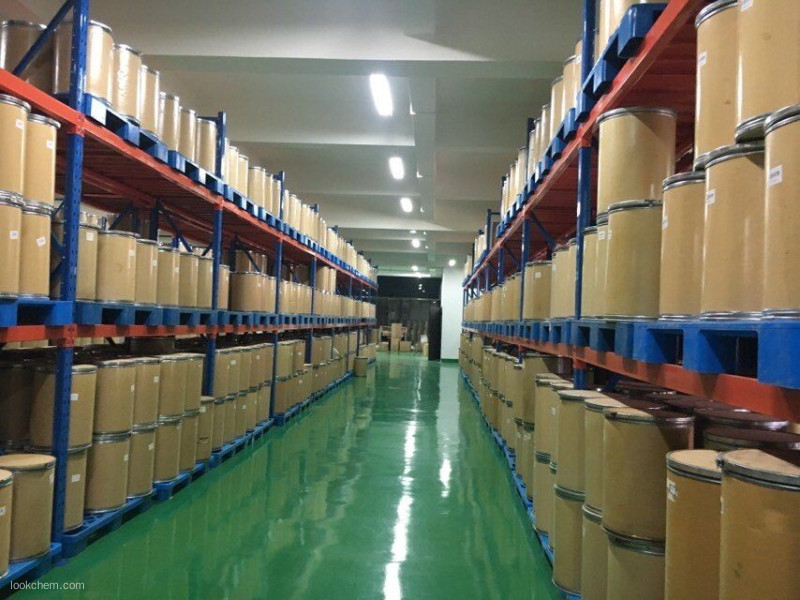
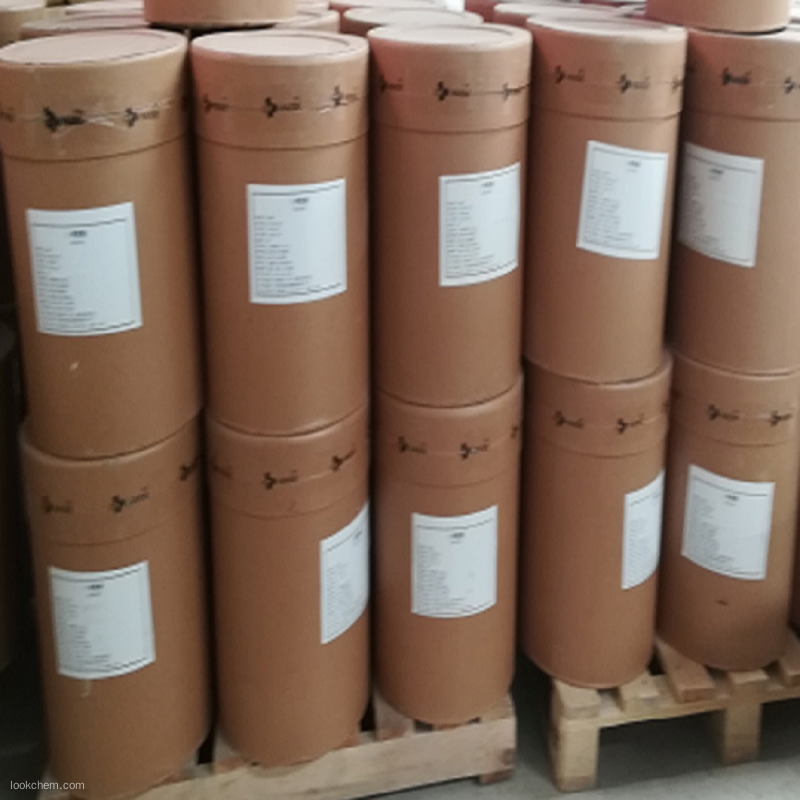
Details:
Product information
Product name: Glycerin monostearate (GMS)
Properties: Glycerin monostearate(GMS), molecular weight 358. It is white or light yellow waxy
or powder solid; Soluble in hot alcohols, petroleum, and hydrocarbons.
Cas Number: 31566-31-1 / 123-94-4
Uses: GMS is mainly used as release agent, plasticizer, antistatic agent in the plastic industry,
especially as an antishrinking agent for plastic foamed products. It can also be applied to plastic
products such as PE, PP, PVC, PC, PET, etc., with significant and long-lasting anti-static effects.
Technical Datasheet:
Test items
Glyceryl monostearate (GMS90) Glyceryl monostearate (GMS40)
Grade
Industrial grade
Industrial grade
Appearance
White or light yellow waxy or
powder solid
white or light yellow waxy or
powder solid
Monoglyceride content ≥90.0%
≥40.0%
Free glycerol
≤ 1.5%
≤ 2.5%
Acid value
≤ 6.0mgKOH/g
≤5.0mgKOH/g
Lead
/
≤ 2.0mg/kg
Iodine value
≤ 1.0gI2/100g
≤ 1.5gI2/100g
Freezing point
60℃~70 ℃
≥53℃
Color (Lovibond)
≤ 200(Hazen)
≤ 400(Hazen)
Shelf life
2 years
| Glyceryl monostearate Basic information |
| |
| Glyceryl monostearate Chemical Properties |
| Melting point |
78-81 °C |
| Boiling point |
410.96°C (rough estimate) |
| density |
0.9700 |
| refractive index |
1.4400 (estimate) |
| storage temp. |
Sealed in dry,Store in freezer, under -20°C |
| solubility |
Soluble in hot ethanol, ether, chloroform, hot acetone, mineral oil, and fixed oils. Practically insoluble in water, but may be dispersed in water with the aid of a small amount of soap or other surfactant. |
| form |
Powder |
| color |
Pure-white or cream-colored, wax-like solid |
| Odor |
faint odor |
| Water Solubility |
Soluble in hot organic solvents.Soluble in hot water. Slightly soluble in ethanol. Insoluble in aliphatic solvents. |
| Merck |
14,4489 |
| CAS DataBase Reference |
31566-31-1(CAS DataBase Reference) |
| EPA Substance Registry System |
Glyceryl monostearate (31566-31-1) |
| WGK Germany |
1 |
| TSCA |
Yes |
| Toxicity |
LD50 ipr-mus: 200 mg/kg NTIS** AD277-689 |
| Provider |
Language |
| SigmaAldrich |
English |
| ALFA |
English |
| |
| Glyceryl monostearate Usage And Synthesis |
| Description |
§184.1324(a) Glyceryl monostearate, also known as monostearin, is a mixture of variable proportions of glyceryl monostearate (C21H42O4), and glyceryl esters of fatty acids present in commercial stearic acid. Glyceryl monostearate is prepared by glycerolysis of certain fats or oils that are derived from edible sources or by esterification, with glycerin, of stearic acid that is derived from edible sources. |
| Chemical Properties |
Glyceryl monostearate is waxy to the touch and has a slight, mild fatty odor and taste The USP describes glyceryl monostearate as consisting of not less than 90% of monoglycerides, chiefy glyceryl monostearate and glyceryl monopalmitate. |
| Chemical Properties |
Beads |
| Chemical Properties |
While the names glyceryl monostearate and mono- and diglycerides are used for a variety of esters of long-chain fatty acids, the esters fall into two distinct grades:
40–55 percent monoglycerides The PhEur 6.0 describes glyceryl monostearate 40–55 as a mixture of monoacylglycerols, mostly monostearoylglycerol, together with quantities of di- and triacylglycerols. It contains 40–55% of monoacylglycerols, 30–45% of diacylglycerols, and 5–15% of triacylglycerols. This PhEur grade corresponds to mono- and di-glycerides USP– NF, which has similar specifications (not less than 40% monoglycerides).
90 percent monoglycerides The USP32–NF27 describes glyceryl monostearate as consisting of not less than 90% of monoglycerides of saturated fatty acids, chiefly glyceryl monostearate (C21H42O4) and glyceryl monopalmitate (C19H38O4).
The commercial products are mixtures of variable proportions of glyceryl monostearate and glyceryl monopalmitate.
Glyceryl monostearate is a white to cream-colored, wax-like solid in the form of beads, flakes, or powder. It is waxy to the touch and has a slight fatty odor and taste. |
| Uses |
glyceryl stearate is an emulsifier that helps form neutral, stable emulsions. It is also a solvent, humectant, and consistency regulator in water-in-oil and oil-in-water formulations. In addition, it can be used as a skin lubricant and imparts a pleasant skin feel. glyceryl stearate is a mixture of mono-, di-, and triglycerides of palmitic and stearic acids, and is made from glycerin and stearic fatty acids. Derived for cosmetic use from palm kernel or soy oil, it is also found in the human body. It is very mild with a low skin-irritation profile; however, a slight risk of irritation exists if products contain poor quality glyceryl stearate. |
| Uses |
Glyceryl monostearate is also known as monostearin, is a mixture of variable proportions of glyceryl monostearate, glyceryl monopalmitate, and glyceryl esters of fatty acids present in commercial stearic acid. Is prepared by glycerolysis of certain fats or oils that are derived from edible sources or by esterification, with glycerin, of stearic acid that is derived from edible sources. |
| Uses |
Lonzest(R) GMS is a surfactant used in a variety of markets. |
| Uses |
Aldo(R) MS BO KFG is a glycerol ester made from soybean oil derived fatty acid. This product finds uses in both food and cosmetic applications. |
| Uses |
Aldo(R) MSD KFG is a self emulsifying nonionic surfactant, used as a lubricant in confectionery, as a release agent and as a dough softener. It is used as a low HLB emulsifier in personal care products where non animal grade products are needed. |
| Uses |
In pharmaceutical dispensing, see Green, J. Am. Pharm. Assoc. Pract. Pharm. Ed. 7, 299 (1946). |
| Uses |
glyceryl monostearate (glycerin monostearate; glyceryl stearate) is widely used in cosmetics. It is an emulsifying and solubilizing ingredient, dispersing agent, emollient, formula stabilizer, and surface-action agent. employed in baby creams, face masks, foundation, and hand lotions, it is often derived from hydrogenated soybean oil. glyceryl monostearate has little or no G toxicity. |
| Definition |
An intermediate chemical. |
| Production Methods |
Glyceryl monostearate is prepared by the reaction of glycerin with triglycerides from animal or vegetable sources, producing a mixture of monoglycerides and diglycerides. The diglycerides may be further reacted to produce the 90% monoglyceride grade. Another process involves reaction of glycerol with stearoyl chloride.
The starting materials are not pure substances and therefore the products obtained from the processes contain a mixture of esters, including palmitate and oleate. Consequently, the composition, and therefore the physical properties, of glyceryl monostearate may vary considerably depending on the manufacturer. |
| Pharmaceutical Applications |
The many varieties of glyceryl monostearate are used as nonionic emulsifiers, stabilizers, emollients, and plasticizers in a variety of food, pharmaceutical, and cosmetic applications. It acts as an effective stabilizer, that is, as a mutual solvent for polar and nonpolar compounds that may form water-in-oil or oil-in-water emulsions.These properties also make it useful as a dispersing agent for pigments in oils or solids in fats, or as a solvent for phospholipids, such as lecithin.
Glyceryl monostearate has also been used in a novel fluidized hot-melt granulation technique for the production of granules and tablets.
Glyceryl monostearate is a lubricant for tablet manufacturing and may be used to form sustained-release matrices for solid dosage forms. Sustained-release applications include the formulation of pellets for tablets or suppositories, and the preparation of a veterinary bolus. Glyceryl monostearate has also been used as a matrix ingredient for a biodegradable, implantable, controlledrelease dosage form.
When using glyceryl monostearate in a formulation, the possibility of polymorph formation should be considered. The aform is dispersible and foamy, useful as an emulsifying agent or preservative. The denser, more stable, b-form is suitable for wax matrices. This application has been used to mask the flavor of clarithromycin in a pediatric formulation. |
| Safety Profile |
Poison by intraperitoneal route. When heated to decomposition it emits acrid smoke and irritating fumes. See also ESTERS. |
| Safety |
Glyceryl monostearate is widely used in cosmetics, foods, and oral and topical pharmaceutical formulations, and is generally regarded as a nontoxic and nonirritant material.
LD50 (mouse, IP): 0.2 g/kg |
| storage |
If stored at warm temperatures, glyceryl monostearate increases in acid value upon aging owing to the saponification of the ester with trace amounts of water. Effective antioxidants may be added, such as butylated hydroxytoluene and propyl gallate.
Glyceryl monostearate should be stored in a tightly closed container in a cool, dry place, and protected from light. |
| Incompatibilities |
The self-emulsifying grades of glyceryl monostearate are incompatible with acidic substances. |
| Regulatory Status |
GRAS listed. Included in the FDA Inactive Ingredients Database (oral capsules and tablets; ophthalmic, otic, rectal, topical, transdermal, and vaginal preparations). Included in nonparenteral medicines licensed in the UK. Included in the Canadian List of Acceptable Non-medicinal Ingredients.
If glyceryl monostearate is produced from animal fats (tallow), there may be additional regulatory requirements that the source be free of contamination from bovine spongiform encephalopathy. |
| |
| Glyceryl monostearate Preparation Products And Raw materials |
|
|
|